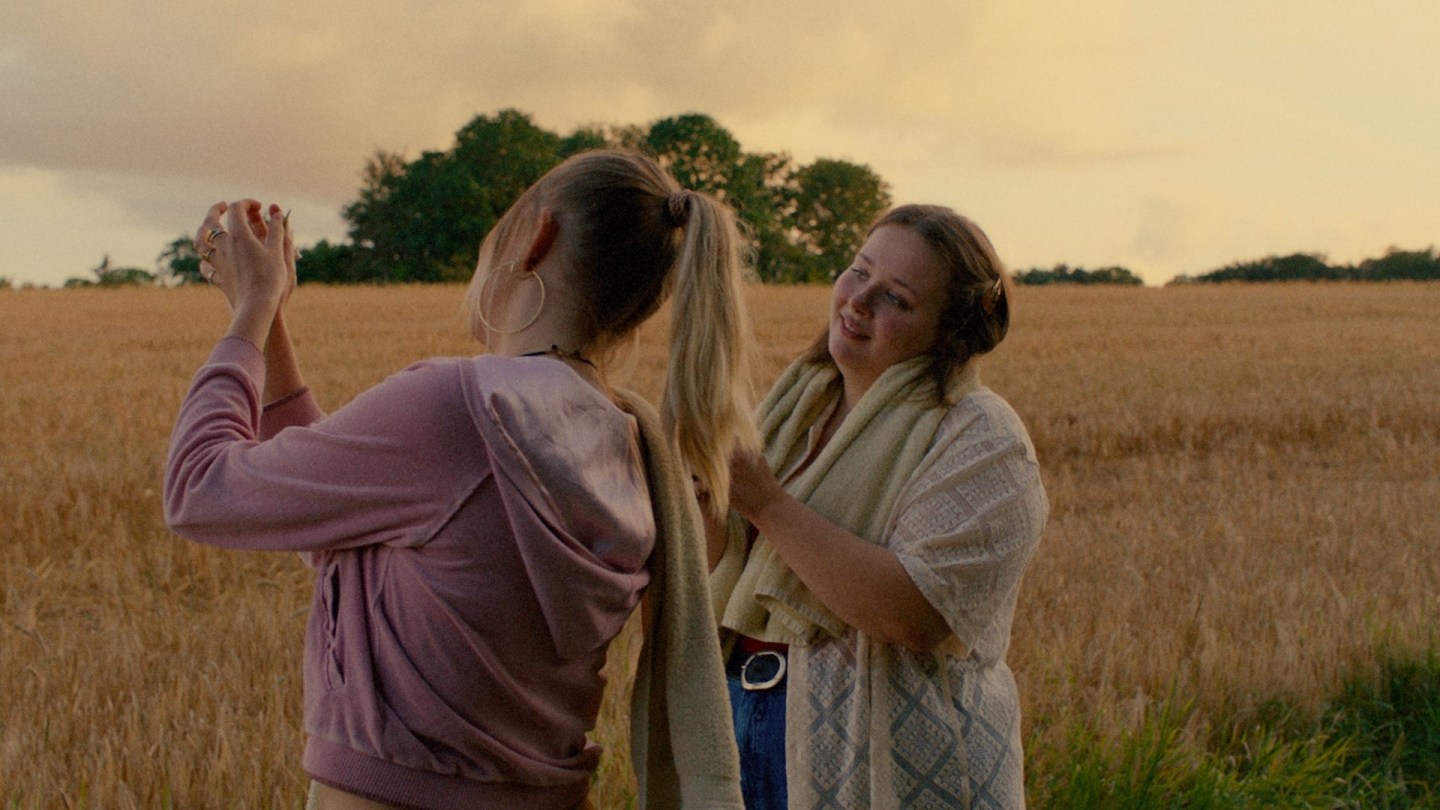In the poignant Danish film Weightless, Lea, portrayed with impressive depth by Marie Helweg Augustsen, navigates far more than just diet tips and fitness routines at a summer weight-loss camp. This debut feature from director Emilie Thalund presents an audacious yet sensitive exploration of teenage self-discovery and societal pressures.
The film may remind some viewers of Ulrich Seidl’s 2013 work Paradise: Hope and Catherine Breillat’s Fat Girl, both of which delve into the experiences of adolescents grappling with self-esteem and burgeoning sexual identity. However, Thalund and screenwriter Marianne Lentz provide a contemporary lens, capturing a distinctly Danish perspective amid a culture that oscillates between progressive educational methods and social conformity. Their work earned Weightless the prestigious New Directors award at this year’s San Sebastian Film Festival.
As the film unfolds, we witness Lea’s arrival at camp alongside her mother, Julie Thalund, and her younger brother, Joel Hesse Johansen. After a thorough physical examination and an essential weigh-in to chart her progress, it becomes clear that Lea’s choice to attend this camp was made independently; her mother underscores that Lea is motivated to shed pounds for the sake of her health.
Interestingly, the film makes no references to weight-loss medications like Ozempic or Wegovy—popular treatments developed by Danish pharmaceutical giant Novo Nordisk. These drugs, which are prescribed to teens in Denmark and across the EU, are absent from conversational topics at the camp. Instead, the focus remains on traditional weight loss methods involving controlled meals and ample exercise, making candy and cookies off-limits.
Lea is placed in a room with Sasha, played by Ella Paaske. Unlike Lea, Sasha does not seem to struggle with weight but has landed at the camp due to behavioral issues stemming from her recent poor choices, including a relationship with an older man. Known as a “bad influence” by her school and a source of frustration for her parents, Sasha’s rebellious nature adds tension to her relationship with Lea.
The story takes an unsettling turn when Rune, portrayed by Joachim Fjelstrup, a camp counselor, begins to show a particular interest in both girls. His visits to their room blur inappropriate lines, and Lea swiftly develops a crush on him, responding with giggles and curiosity. She even finds herself spying on him during a shower, captivated by his presence.
A clever misdirection leads the audience to believe that Rune is more interested in Sasha, creating a sense of concern for Lea. However, the narrative takes a sharp turn when it becomes evident that Rune’s affections lie with Lea. In a strikingly uncomfortable scene, Rune makes his intentions known, a moment handled with a delicate firmness that avoids sensationalism. Thalund’s direction, complemented by the work of an intimacy coordinator, ensures that the scene focuses on Augustsen’s portrayal of a mix of emotions—surprise, anxiety, and a flicker of thrill—as she comes to terms with a potential romance reminiscent of Sasha’s past experiences.
As the story progresses, Thalund and Lentz dive deeper into the intricacies of female friendships, examining the complex dynamics between Lea and Sasha. Their relationship oscillates between camaraderie and competition, encapsulating a struggle for power that extends beyond superficial teenage rivalries. The friendship evolves, particularly highlighted during a scene in which they sneak away to drink with local boys who taunt Lea. When Lea finds the courage to stand up for herself, the balance of power shifts, and what was once a relationship marked by bullying transforms into a more authentic friendship.
Ultimately, Weightless is not just a coming-of-age story centered on weight loss but an intricate portrayal of adolescent friendships and the journey towards self-acceptance. Through emotional highs and lows, the film sheds light on the challenges faced by a generation caught between personal desires and societal expectations, encapsulating the struggle for identity in a compassionate and thoughtful manner.






